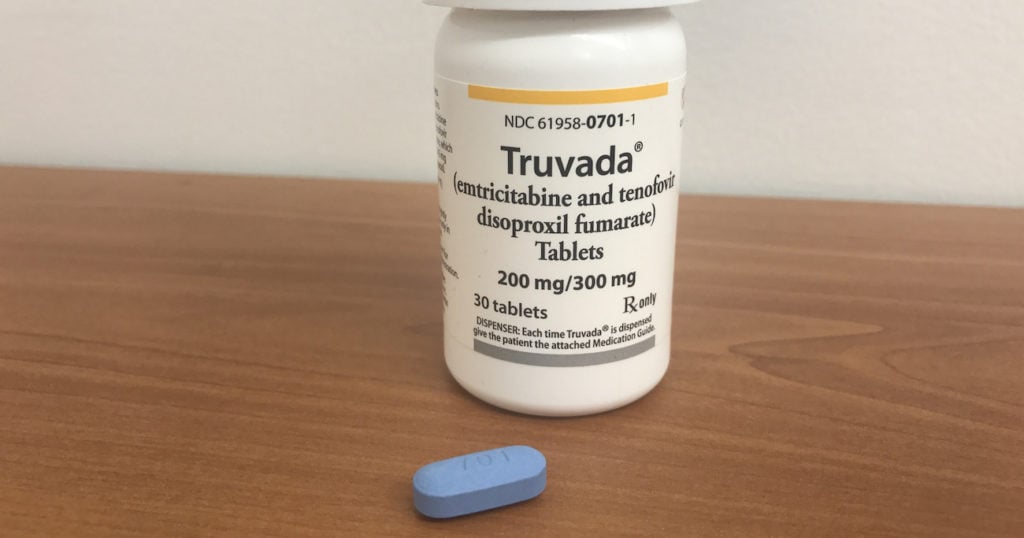
Californians are able to receive up to a 90-day supply of PrEP without a prescription thanks to a bill signed into law by Gov. Gavin Newsom this week. Photo: Gilead Sciences.
Californians are able to receive up to a 90-day supply of PrEP without a prescription thanks to a bill signed into law by Gov. Gavin Newsom this week.
SB 339 was signed by Newsom Tuesday and went into effect immediately.
SB 339 improves Sen. Scott Wiener’s SB 159, the first-in-the-nation law that allowed pharmacists to distribute PrEP without a prescription, that was signed in 2019.
SB 339 also will make PrEP easier for people to access.
“HIV continues to take a huge toll on public health in California, and SB 339 unlocks a powerful tool to prevent new infections,” Wiener, the bill’s author, said in a statement. “PrEP is nearly 100% effective at preventing HIV transmission, but far too many Californians lack access to it. Allowing people to obtain this powerful anti-HIV tool at their neighborhood pharmacy will greatly expand access and is a big step toward a future free from new HIV cases.”
Wiener was forced to pause the legislation last September after a poison pill amendment was added. The amendment was removed, and the bill restored to its previous form.
Despite significant public health advancements, HIV remains a major public health challenge in California, with nearly 4,000 HIV diagnoses each year. Black and Latino gay and bisexual men, Black cisgender women, transgender women, and youth continue to be the populations most impacted by HIV.
PrEP is a preventative drug taken orally or intravenously that reduces the risk of contracting HIV through sexual contact by more than 99%, making it more effective than any other measure to prevent HIV, including condoms.
Despite its incredible efficacy, fewer than 25% of the people who would benefit from PrEP are using these medications.
SB 159 authorized pharmacies to furnish up to a 60-day supply of PrEP without a prescription.
It also banned health plans from imposing step therapy and prior authorization on PrEP.
However, few pharmacies have successfully used the law to furnish PrEP in California. In surveys, providers cited the fact that health plans do not cover the cost of pharmacists’ labor in preparing PrEP as a major obstacle, and that the 60-day window is too short to ensure referral to a primary-care physician.
Other states have successfully implemented pharmacy-provided PrEP programs modeled on SB 159, but without its limitations. Colorado, Nevada, and Utah opted not to limit the amount of HIV-preventative medication a pharmacist can provide.
In Colorado, plans must reimburse a pharmacist employed by an in-network pharmacy for prescribing and dispensing PrEP and PEP to a covered person, and to provide an adequate consultative fee to those pharmacists.
In Nevada, public and private plans must include coverage for PrEP and PEP and reimburse for laboratory testing, prescribing, dispensing, and administering these medications by a pharmacist at a rate equal to that of a physician.
SB 339 takes lessons from these states to address the unforeseen obstacles of SB 159.
SB 339 not only requires health plans to cover up to a 90-day supply of PrEP prescribed by a pharmacist, but also an ongoing supply if the patient is ensured follow-up care and testing consistent with CDC guidelines.
It also mandates health plans to cover costs associated with pharmacist services when furnishing PrEP, including, but not limited to, testing.
These measures will remove the most significant reported barriers to making PrEP available without a prescription, Wiener said.
